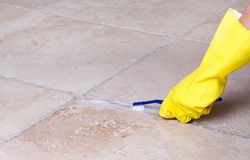
The more packed the grocery store dental care aisle gets, the more complicated choosing a toothbrush becomes. While you might choose a toothbrush simply because it complements your bathroom décor, you should also consider whether you need a hard- or soft-bristled model.
If you’re stumped, use the following guide to protect your teeth and gums.
Hard Toothbrushes
 Since plaque and tartar can wreak havoc on your teeth, hard-bristled toothbrushes seem like a natural solution to the problem. Unfortunately, most hard-bristled toothbrushes are too firm for delicate dental enamel and gum tissue, and using them could cause issues like gum erosion, lacerations, and even damaged dental surfaces.
Since plaque and tartar can wreak havoc on your teeth, hard-bristled toothbrushes seem like a natural solution to the problem. Unfortunately, most hard-bristled toothbrushes are too firm for delicate dental enamel and gum tissue, and using them could cause issues like gum erosion, lacerations, and even damaged dental surfaces.
Research studies conducted by the Journal of Clinical Periodontology reveal a direct correlation between bristle strength and dental damage, which is why dentists across the world recommend soft-bristled toothbrushes for their patients. Although hard toothbrushes aren’t right for dental care, they do have other applications, like grout cleaning.
Soft Toothbrushes
Although the bristles might seem weak, soft-bristled toothbrushes are designed to remove food grime and plaque from the surface of your teeth. Soft-bristled toothbrushes are gentle enough to be used on orthodontic work, dental restorations, dentures, and even children’s mouths, making them the natural choice for every member of your family.
Are you living with dental damage due to aggressive brushing? The clinicians at Tohill Dentistry in Somerset, KY, understand how difficult proper daily dental care can be. That’s why they are proud to help with everything from preventive dentistry to complex dental reconstructions. Whether you are living with gum disease and are concerned about recession or you simply want a whiter, brighter smile, their experienced team of dentists can help. For more information about their services, visit Tohill Dentistry online or call (606) 679-4450 to speak to a friendly employee.
About the Business
Have a question? Ask the experts!
Send your question

